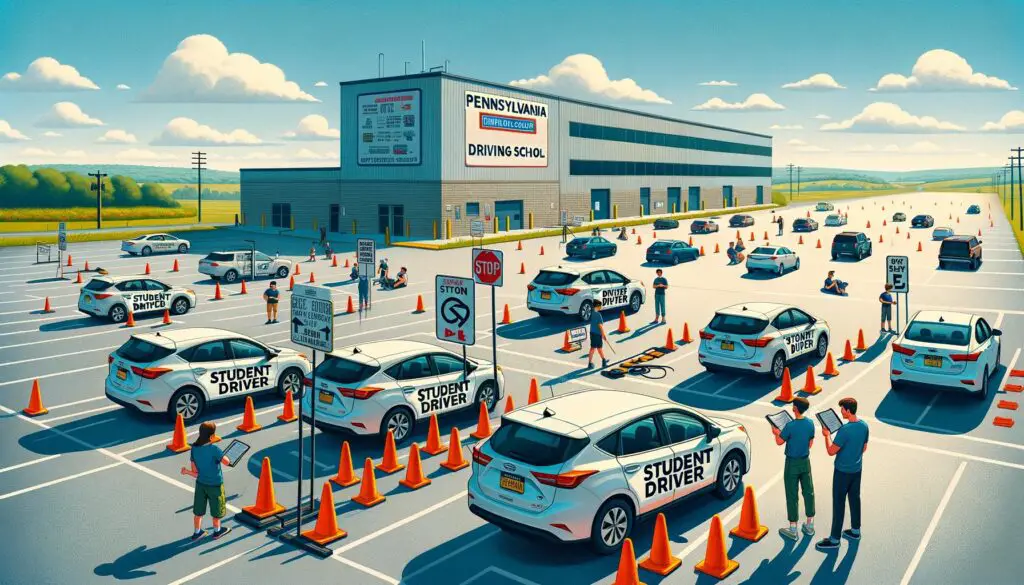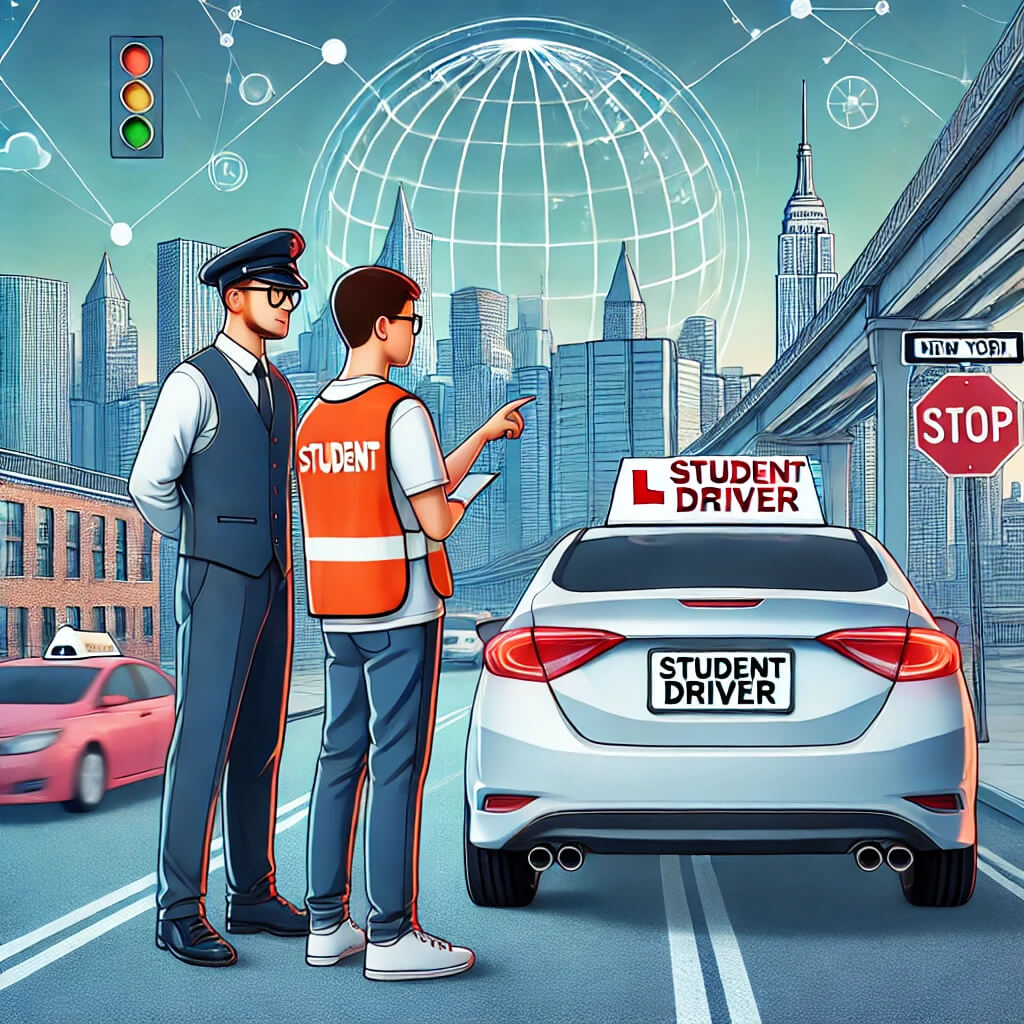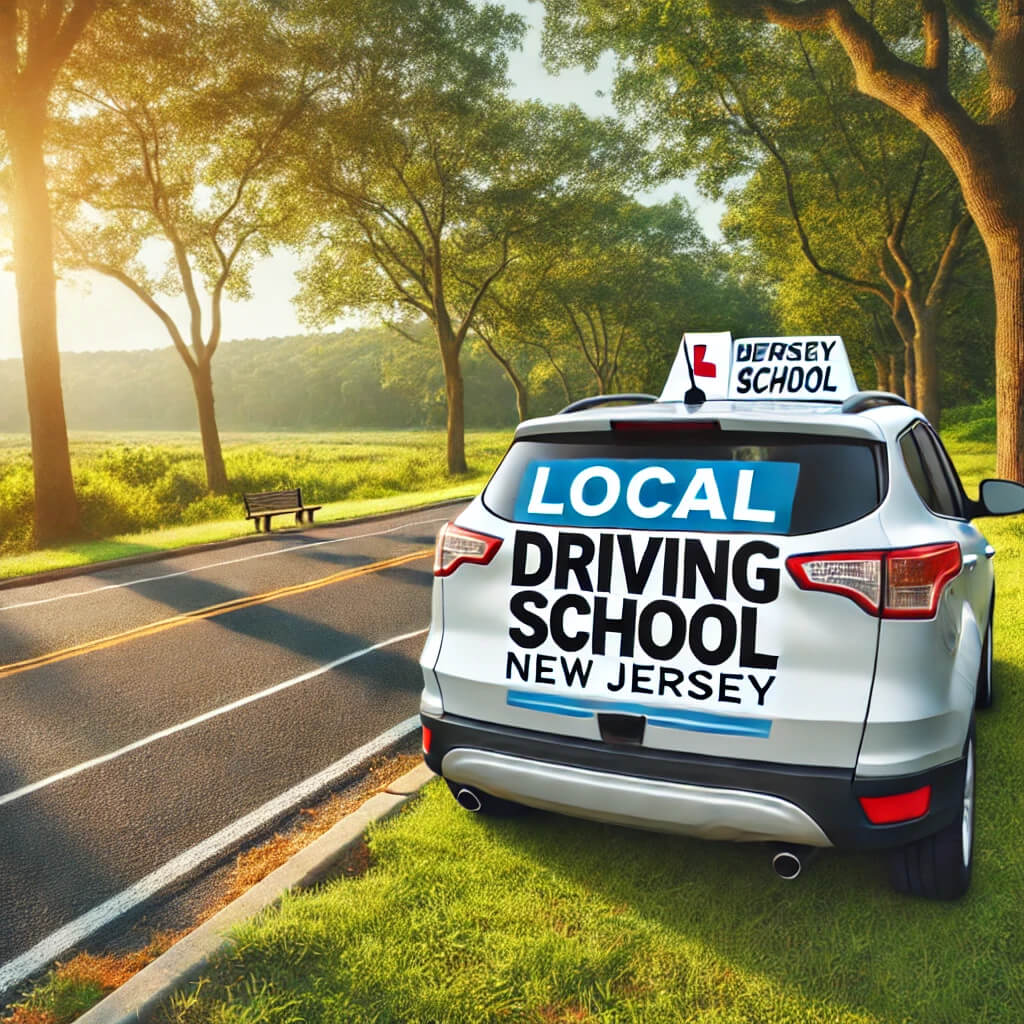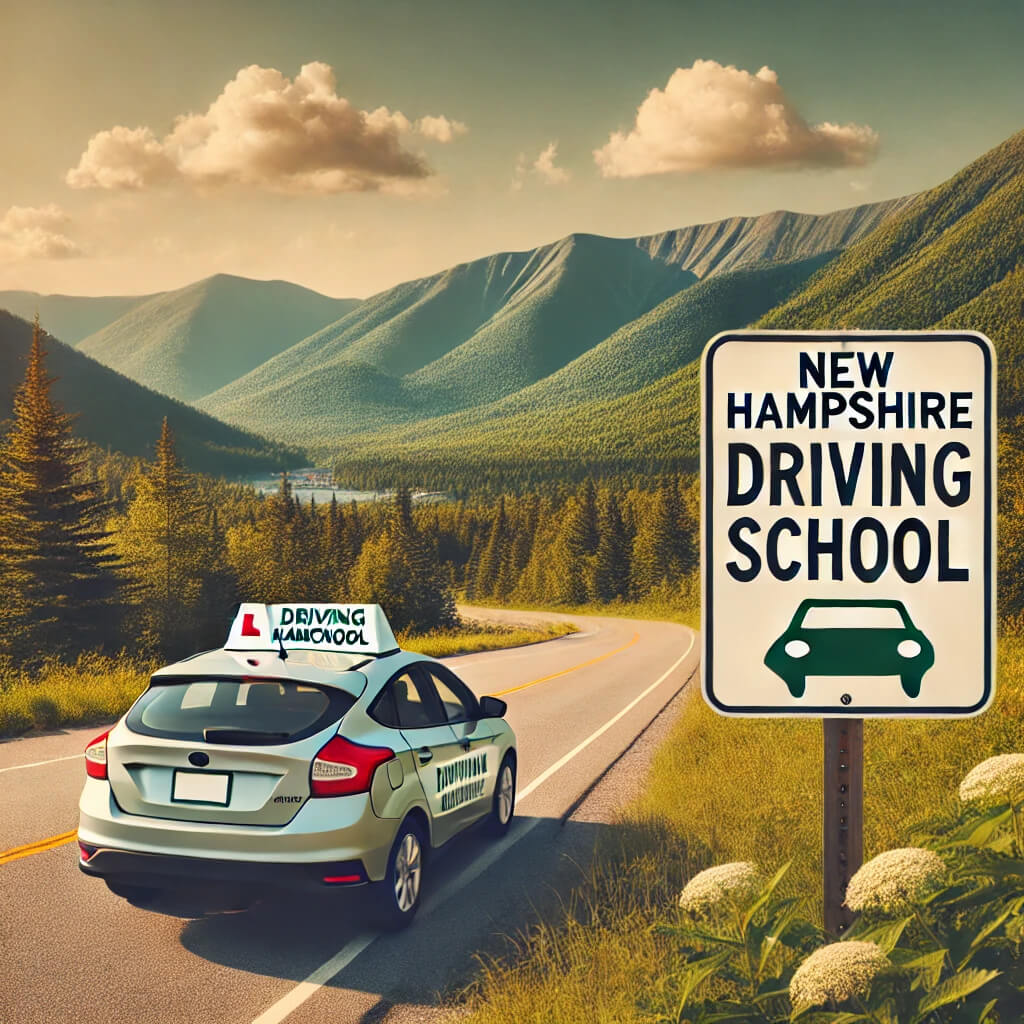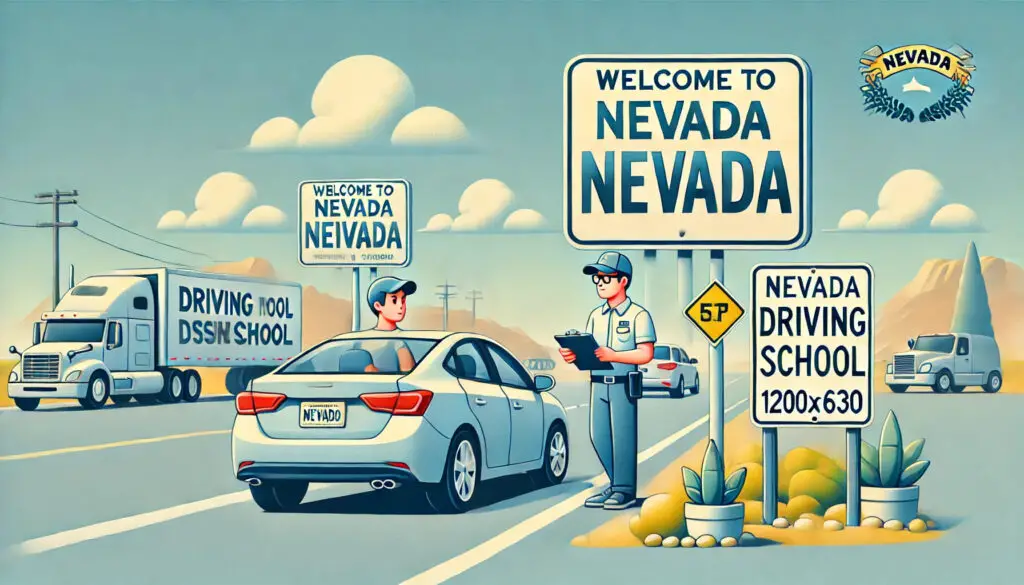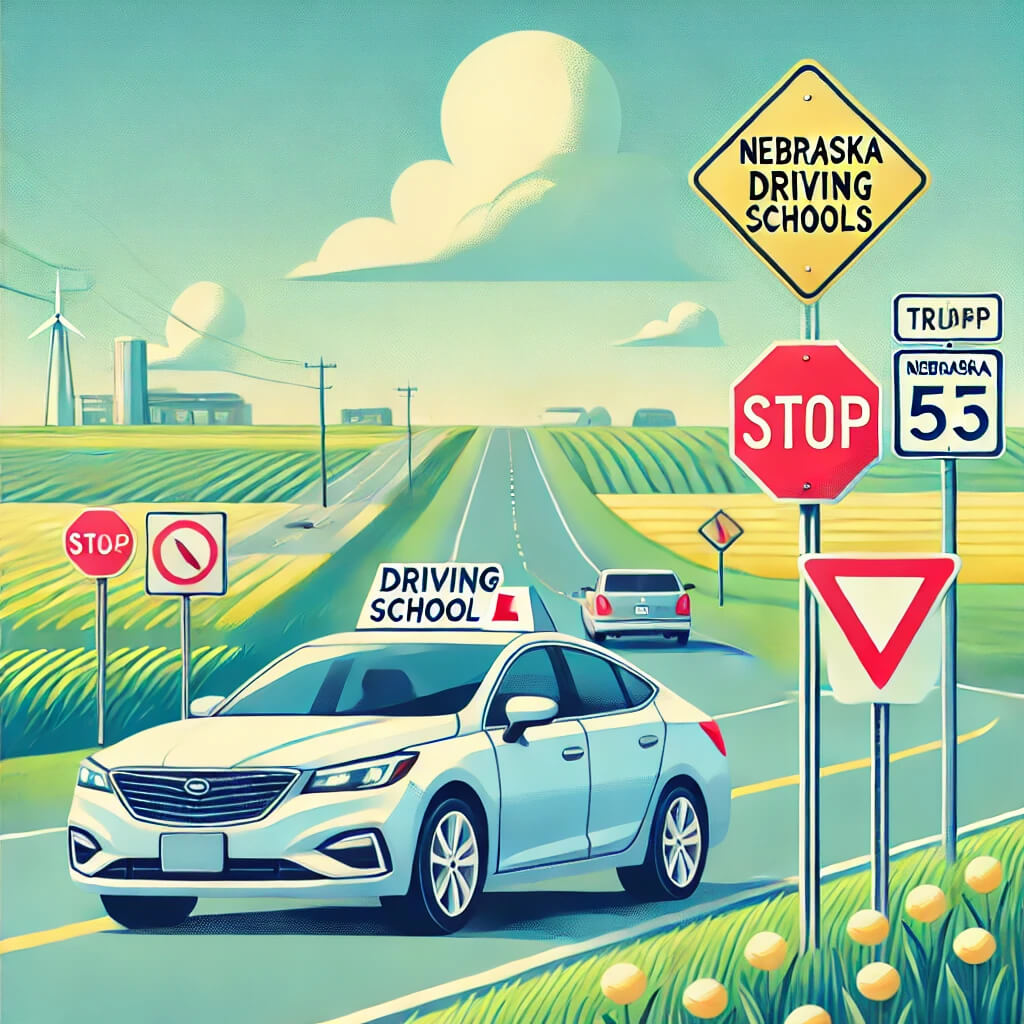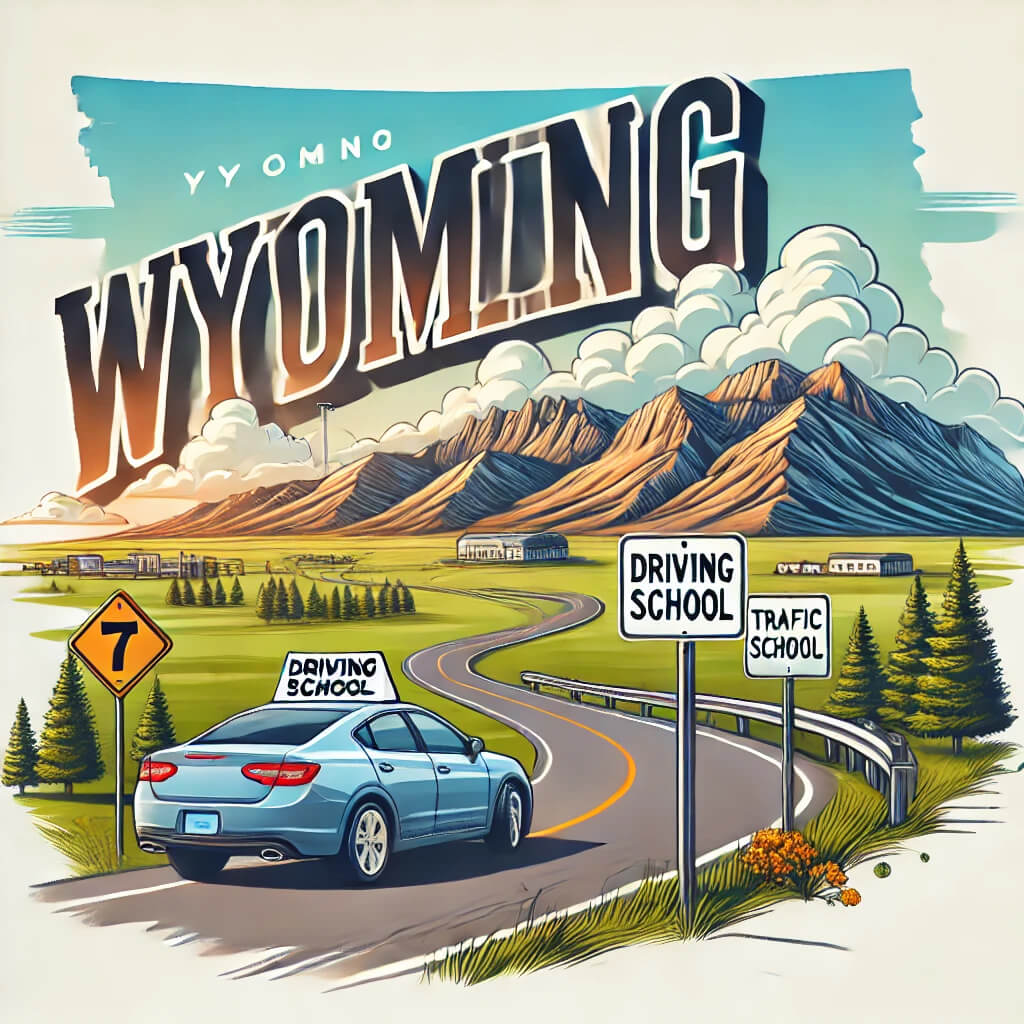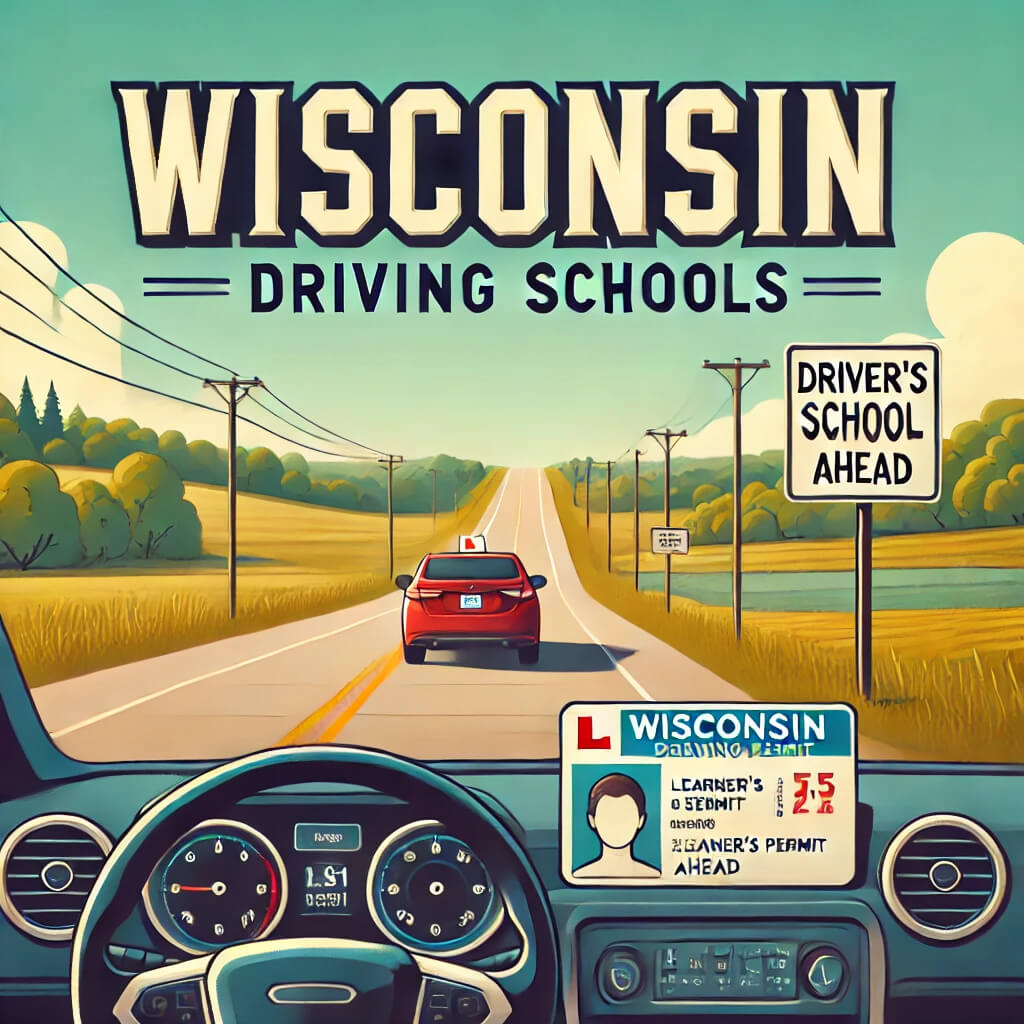In today’s fast-paced world, obtaining a driver’s license is an essential step towards independence and mobility. However, the journey to becoming a proficient and responsible driver begins with choosing the right driving school. At [Your Company Name], we understand the importance of this decision and aim to provide you with a comprehensive guide to navigating Pennsylvania’s diverse driving school landscape.
Why Enroll in a Driving School?
Enrolling in a driving school is a crucial step towards becoming a safe and responsible driver. In this comprehensive guide, we delve into the reasons why individuals should consider enrolling in a reputable driving school, focusing on both the professional guidance for safe driving and the legal requirements and benefits associated with attending such institutions.
Professional Guidance for Safe Driving
1. Comprehensive Training:
- Reputable driving schools provide comprehensive training that covers a wide range of driving skills and techniques. From basic maneuvers to advanced defensive driving strategies, students receive instruction tailored to their individual learning needs.
2. Experienced Instructors:
- Professional driving instructors bring years of experience and expertise to the classroom and behind the wheel. They are trained to effectively communicate driving concepts and provide constructive feedback to help students improve their skills.
3. Latest Teaching Methods and Technologies:
- Driving schools leverage the latest teaching methods and technologies to enhance the learning experience. From interactive simulations to virtual reality training, students have access to cutting-edge resources that facilitate skill development and confidence building.
4. Individualized Instruction:
- Recognizing that each student has unique learning styles and abilities, driving schools offer individualized instruction to cater to diverse needs. Whether it’s extra practice on parallel parking or overcoming driving anxiety, instructors provide personalized support to ensure student success.
5. Confidence Building:
- One of the primary goals of driving schools is to instill confidence in their students. Through structured lessons and gradual progression, students gain the confidence to navigate various road conditions and handle unexpected situations with ease.
Legal Requirements and Benefits
1. Legal Requirement for Licensure:
- In many states, including Pennsylvania, attending a certified driving school is a legal requirement for obtaining a driver’s license. Completing a state-approved driver education program demonstrates to licensing authorities that individuals have received formal training in safe driving practices.
2. Insurance Discounts:
- Many insurance companies offer discounts to drivers who have completed a certified driver education program. By enrolling in a driving school, individuals may qualify for lower insurance premiums, potentially saving them hundreds of dollars annually.
3. Enhanced Driving Skills:
- Beyond meeting regulatory requirements, attending a driving school equips individuals with enhanced driving skills that can help prevent accidents and save lives. From defensive driving techniques to hazard awareness, students learn valuable skills that contribute to safer roadways.
4. Reduced Risk of Accidents:
- Studies have shown that drivers who have completed a formal driver education program are less likely to be involved in accidents compared to those who have not received formal training. By enrolling in a driving school, individuals can reduce their risk of accidents and injuries on the road.
5. Preparation for the Road Test:
- For many individuals, passing the road test is a significant milestone on the journey to obtaining a driver’s license. Driving schools provide comprehensive preparation for the road test, including practice sessions, mock exams, and feedback from instructors, ensuring that students are well-prepared to pass the test with confidence.
Criteria for Selecting a Driving School in Pennsylvania
Choosing the right driving school is a crucial step towards becoming a safe and confident driver. To help you make an informed decision, we’ve outlined key criteria to consider when selecting a driving school in Pennsylvania.
Location Considerations
Proximity to your residence or workplace is a critical factor to consider when selecting a driving school. Choosing a school conveniently located within your area minimizes travel time and ensures easy access to lessons, enhancing your overall learning experience.
Understanding the Cost Structure
While cost is an important consideration, it’s essential to weigh the value provided by the driving school against the fees charged. Transparent pricing and flexible payment options can help alleviate financial concerns while ensuring that you receive quality education and support.
Curriculum and Teaching Methods
A comprehensive curriculum tailored to meet state requirements and address key driving skills is essential for effective learning. Look for schools that offer a balanced mix of classroom instruction, practical training, and simulation-based learning to prepare you for real-world driving scenarios.
Assessing Instructor Qualifications and Experience
Qualified and experienced instructors play a crucial role in shaping your driving skills and instilling safe driving habits. Prioritize schools that employ certified instructors with a proven track record of success and a dedication to ongoing professional development.
Importance of Student Reviews and Testimonials
Feedback from past students can provide valuable insights into the quality of instruction and overall learning experience offered by a driving school. Take the time to read reviews and testimonials from current and former students to gauge satisfaction levels and identify any areas of concern.
By carefully considering these criteria, you can select a driving school that meets your needs and sets you on the path to becoming a safe and responsible driver.
Understanding Pennsylvania’s Driving Education Curriculum
Pennsylvania’s driving education curriculum encompasses a comprehensive range of topics, including traffic laws, road safety, defensive driving techniques, and emergency procedures. By adhering to state-mandated curriculum guidelines, driving schools ensure that students receive standardized and quality education.
Overview of the State’s Curriculum Requirements
The curriculum requirements set by the state of Pennsylvania cover a wide array of topics essential for safe and responsible driving. These include:
- Traffic laws and regulations
- Road signs and signals
- Right-of-way rules
- Hazard recognition and avoidance
- Safe driving practices in various weather conditions
- Emergency procedures, including proper response to accidents and breakdowns
Theory vs. Practical Lessons: What to Expect
The driving education curriculum typically consists of a combination of theoretical classroom instruction and hands-on practical training. Theory lessons cover essential concepts such as road signs, traffic rules, and driving principles, while practical lessons focus on developing actual driving skills under the guidance of an instructor.
- Theory Lessons: In theory classes, students learn about the rules of the road, traffic signs, and laws governing driving behavior. These lessons often involve interactive discussions, multimedia presentations, and written assessments to reinforce learning.
- Practical Lessons: Practical training involves applying theoretical knowledge in real-world driving situations. Students practice maneuvers such as parallel parking, lane changes, and emergency stops under the supervision of a qualified instructor. Practical lessons help students develop confidence, improve vehicle control, and learn to anticipate and respond to potential hazards on the road.
The Role of Technology in Modern Driving Education
Technology has revolutionized the field of driving education, offering innovative tools and platforms to enhance the learning experience and prepare students for safe and confident driving. Here, we explore three key technological advancements that are shaping driving education today:
1. Simulation-Based Training
Simulation-based training utilizes advanced driving simulators to recreate realistic driving scenarios in a controlled environment. This immersive learning approach allows students to:
- Practice Safely: Simulation-based training provides a safe environment for students to practice and refine their driving skills without the risks associated with real-world driving.
- Gain Confidence: By experiencing various road conditions and hazards in a simulated setting, students can build confidence in their ability to handle challenging situations on the road.
- Receive Feedback: Simulators can provide real-time feedback on driving performance, allowing instructors to identify areas for improvement and tailor instruction to meet individual student needs.
2. Online Theory Classes
Online theory classes offer the flexibility and convenience of remote learning, allowing students to access course materials and instruction from any location with an internet connection. These interactive classes:
- Flexibility: Online theory classes accommodate students’ busy schedules by providing access to course materials at any time, allowing for self-paced learning and review.
- Accessibility: Students can participate in theory classes from the comfort of their own homes, eliminating the need for travel to a physical classroom.
- Interactive Learning: Many online theory classes incorporate multimedia elements such as videos, animations, and interactive quizzes to engage students and reinforce learning.
3. App-Based Learning and Tracking Progress
Mobile apps and software solutions enhance the learning experience by providing interactive lessons, practice exercises, and progress tracking tools. These apps:
- Interactive Lessons: App-based learning platforms offer interactive lessons that engage students and reinforce key concepts through multimedia elements and interactive exercises.
- Practice Exercises: Students can access a variety of practice exercises and simulations to reinforce their learning and develop their driving skills.
- Progress Tracking: Apps allow students to track their driving hours, monitor their progress towards achieving licensure, and receive feedback from instructors to guide their learning journey.
By leveraging these technological innovations, driving schools can offer more accessible, engaging, and effective education to students, ultimately preparing them to become safe and responsible drivers on the road.
Tips for First-Time Drivers in Pennsylvania
Navigating the roads as a first-time driver can be both exciting and daunting. Here are some essential tips to help you overcome anxiety and build confidence behind the wheel:
Overcoming Anxiety and Building Confidence
For many first-time drivers, overcoming anxiety is a significant challenge. Here’s how you can tackle it:
- Practice Regularly: Practice, practice, practice! The more time you spend behind the wheel, the more comfortable you’ll become. Start with short drives in familiar areas and gradually work your way up to more challenging routes.
- Stay Calm: Remember to stay calm and focused while driving. Take deep breaths, relax your grip on the steering wheel, and avoid letting nerves get the best of you.
- Positive Reinforcement: Celebrate your successes, no matter how small. Every successful maneuver or smooth lane change is a step forward in building your confidence as a driver.
Essential Skills Every New Driver Should Learn
Mastering essential driving skills is crucial for new drivers. Here are some skills you should focus on:
- Proper Steering Techniques: Learn to hold the steering wheel correctly and practice smooth, controlled steering movements.
- Smooth Acceleration and Braking: Practice gradual acceleration and braking to ensure a comfortable ride for you and your passengers.
- Effective Mirror Usage: Get into the habit of checking your mirrors frequently to stay aware of your surroundings and anticipate potential hazards.
- Safe Lane Changes: Learn the proper procedure for changing lanes, including signaling in advance, checking blind spots, and merging smoothly into traffic.
By focusing on these fundamental skills and gradually building your confidence through practice and positive reinforcement, you’ll soon feel more at ease behind the wheel and ready to tackle the open road.
Legal Aspects of Driving in Pennsylvania
Understanding the legal aspects of driving in Pennsylvania is essential for all drivers to ensure compliance and safety on the road. Here’s what you need to know:
Understanding State-Specific Traffic Laws
Pennsylvania has specific traffic laws and regulations that all drivers must adhere to. Some key laws include:
- Speed Limits: Familiarize yourself with posted speed limits on different types of roads, including highways, residential streets, and school zones.
- Traffic Signals: Understand the meaning of traffic signals, including red, yellow, and green lights, as well as stop signs and yield signs.
- Right-of-Way: Know who has the right-of-way in various driving situations, such as at intersections, in roundabouts, and when merging onto highways.
The Process of Obtaining a Pennsylvania Driver’s License
Obtaining a driver’s license in Pennsylvania involves several steps:
- Driver’s Education Course: Complete a state-approved driver’s education course, which typically includes both classroom instruction and behind-the-wheel training.
- Written Knowledge Test: Pass a written knowledge test administered by the Pennsylvania Department of Transportation (PennDOT) to demonstrate your understanding of traffic laws and safe driving practices.
- Learner’s Permit: Obtain a learner’s permit by passing a vision screening and paying the required fees. With a learner’s permit, you can practice driving under the supervision of a licensed adult driver.
- Supervised Driving Practice: Practice driving for a minimum number of hours (typically 65 hours) under the supervision of a licensed adult driver who is at least 21 years old and has been licensed for at least one year.
- Road Skills Test: Schedule and pass a road skills test administered by PennDOT to demonstrate your ability to safely operate a motor vehicle. Upon passing the test, you will be issued a Pennsylvania driver’s license.
By understanding Pennsylvania’s traffic laws and following the process outlined for obtaining a driver’s license, you can ensure that you are legally and safely licensed to drive in the state.
Beyond the Basics – Additional Services Provided by Driving Schools
Driving schools offer a range of additional services to cater to the diverse needs of learners and drivers. Here are some of the extra services provided:
Car Rental for Driving Tests
- Convenience: Many driving schools offer car rental services for students taking their driving tests, eliminating the need for students to arrange their own transportation.
- Properly Maintained Vehicles: Students have access to properly maintained vehicles that meet the requirements for driving tests, ensuring a reliable and stress-free testing experience.
- Familiarity: Renting a vehicle from the driving school allows students to practice in a familiar car, increasing their confidence and performance during the test.
Refresher Courses for Experienced Drivers
- Skill Enhancement: Refresher courses cater to experienced drivers who wish to brush up on their skills, address bad habits, or improve their knowledge of updated traffic laws and regulations.
- Customized Instruction: These courses offer customized instruction tailored to the specific needs and goals of each driver, whether it’s improving defensive driving techniques, mastering parallel parking, or navigating complex intersections.
Special Accommodations for Differently-Abled Learners
- Specialized Instruction: Driving schools strive to accommodate the unique needs of differently-abled learners by providing specialized instruction and adaptive equipment.
- Personalized Support: Instructors offer personalized support and guidance to ensure that differently-abled learners have equal access to driving education and licensure.
- Accessibility: Driving schools may also offer facilities and resources designed to accommodate learners with physical disabilities, such as wheelchair-accessible classrooms and vehicles.
By offering these additional services, driving schools ensure that learners and drivers of all backgrounds and abilities have the opportunity to receive quality education and support on their journey to becoming safe and confident drivers.
Making an Informed Decision
When selecting a driving school, it’s essential to make an informed decision by considering various factors and asking the right questions. Here’s what to look for:
Visiting Schools: What to Look For
- Facilities: Assess the condition of the school’s facilities, including classrooms, driving simulators (if available), and practice areas. Clean and well-maintained facilities reflect a commitment to providing a conducive learning environment.
- Instructional Materials: Review the quality of instructional materials, such as textbooks, handouts, and multimedia resources. Up-to-date and comprehensive materials indicate a focus on delivering quality education.
- Professionalism: Observe the professionalism of the staff, including instructors and administrative personnel. Friendly and knowledgeable staff who are responsive to inquiries and concerns contribute to a positive learning experience.
- Atmosphere: Pay attention to the overall atmosphere of the school. A welcoming and supportive atmosphere fosters learning and encourages student engagement.
Questions to Ask Before Enrollment
Before enrolling in a driving school, ask the following questions to ensure that it meets your needs and expectations:
- Curriculum Content: Inquire about the content of the driving curriculum, including topics covered, teaching methods, and practical training components.
- Instructor Qualifications: Ask about the qualifications and experience of the instructors, including their certifications, teaching experience, and any additional training they have undergone.
- Class Schedules: Clarify the class schedules, including the duration of each session, frequency of classes, and availability of flexible scheduling options.
- Tuition Fees: Understand the tuition fees and any additional costs associated with the driving course, such as exam fees, textbook expenses, or equipment rental fees.
- Additional Services: Inquire about any additional services or amenities offered by the driving school, such as car rental for driving tests, refresher courses, or special accommodations for differently-abled learners.
By carefully considering these factors and asking relevant questions, you can make an informed decision and choose a driving school that aligns with your goals and preferences.
Frequently Asked Questions
Here are answers to some commonly asked questions about driving education in Pennsylvania:
What is the Average Cost of Driving Lessons in Pennsylvania?
The average cost of driving lessons in Pennsylvania varies depending on factors such as the driving school, location, duration of the course, and additional services included. Generally, expect to pay between $50 and $100 per hour for driving instruction.
How Many Hours of Driving Instruction Are Required in Pennsylvania?
Pennsylvania law requires new drivers under the age of 18 to complete a minimum of 65 hours of supervised driving practice, including 10 hours of nighttime driving, before obtaining a junior driver’s license.
Can I Take Driving Lessons in Pennsylvania if I’m From a Different State?
Yes, out-of-state residents can enroll in driving lessons in Pennsylvania, provided they meet the state’s eligibility requirements and adhere to any additional regulations or procedures.
What is the Passing Score for the Pennsylvania Driving Test?
To pass the Pennsylvania driving test, applicants must demonstrate proficiency in various driving skills and knowledge areas, including vehicle control, traffic laws, and safe driving practices. The passing score may vary depending on the specific test administered.
Are There Any Online Driving Schools in Pennsylvania?
Yes, several driving schools in Pennsylvania offer online courses and virtual instruction for classroom-based components of driver education. Online driving schools provide flexibility and convenience for students unable to attend traditional in-person classes.
These FAQs aim to provide clarity and guidance to individuals seeking information about driving education in Pennsylvania.
Conclusion
In conclusion, choosing the right driving school is a crucial step towards achieving your goals of becoming a safe, confident, and responsible driver. By considering factors such as location, cost, curriculum, instructor qualifications, and student reviews, you can make an informed decision that sets you on the path to success. At [ConsumerAuto.us], we are committed to providing comprehensive guidance and support to help you navigate Pennsylvania’s driving education landscape with confidence and ease.
Additional Resources
For additional information and resources on Pennsylvania driving schools and regulations, we recommend visiting the following websites:
- Pennsylvania Department of Transportation
- Pennsylvania Driving School Association
- AAA Central Penn
- National Highway Traffic Safety Administration
About the Author
Parth, a seasoned expert in driving education and safety, brings 10 years of experience to the field. With a passion for promoting safe driving practices and empowering learners of all ages, [Parth] is dedicated to providing valuable insights and guidance to aspiring drivers.
Contact Information
For further inquiries, feedback, or consultation on driving education and safety, please feel free to contact us at:
[ConsumerAuto.us] , ConsumerAuto.us@gmail.com
Comments and Reviews Section
We value your feedback and experiences! Please share your thoughts, questions, and reviews in the comments section below. Your input helps us continually improve our content and services to better serve our readers and community.

